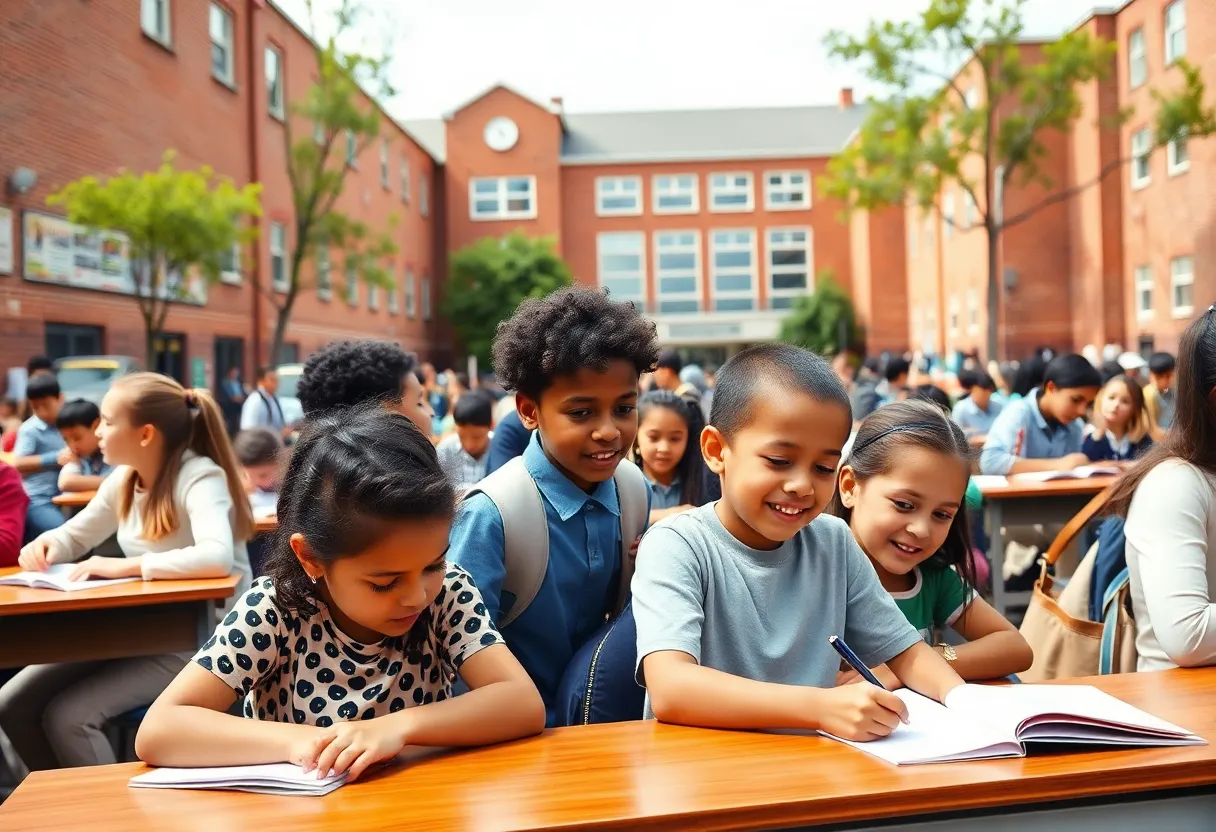News Summary
Arizona’s public education landscape is shifting as universal school choice’s impact deepens. The closure of John R. Davis Elementary School highlights community struggles with decreasing student enrollment. The Roosevelt Elementary School District now operates only 13 schools due to competition from charter schools and private institutions, leading to severe funding challenges. Critics argue that this school choice model exacerbates disparities and threatens public education stability, raising concerns about future implications as more districts consider closures amidst declining enrollment.
Arizona is witnessing significant shifts in its public education landscape as the impact of universal school choice becomes increasingly evident. The permanent closure of John R. Davis Elementary School in Phoenix after 43 years serves as a poignant example of the emotional and educational consequences faced by communities grappling with declining public school enrollment.
The Roosevelt Elementary School District has seen its number of operational schools shrink to just 13, largely due to a consistent decrease in student enrollment. This trend is attributed primarily to heightened competition from alternative education options, such as charter schools and private institutions. In 2021, only 75% of students in Arizona attended public schools, marking one of the lowest rates nationally.
Arizona’s aggressive adoption of a multifaceted school choice system—including charter schools, tax-funded homeschooling, and private school vouchers—has intensified competition for both students and state funding. Currently, nearly 89,000 students benefit from Empowerment Scholarship Accounts (ESAs) while an additional 62,000 are enrolled in programs offering private school scholarships. This influx into alternative educational avenues poses significant challenges for public school funding and sustainability.
In the context of the Roosevelt district, enrollment has plummeted from around 10,500 students in 2010 to just over 7,000 last fall. Families increasingly gravitate towards the 21 nearby charter schools available in the area, impacting student retention rates. To combat a $5 million budget deficit, Superintendent Dani Portillo has proposed closing multiple schools, a move that reflects the urgent need for financial stabilization within the district.
Underlying these enrollment declines are historical factors such as redlining and ongoing socioeconomic challenges that have disproportionately affected educational opportunities in south Phoenix. Critics of the school choice model argue that vouchers—which divert necessary funding from public schools—place public institutions at a disadvantage. Public schools are subjected to federal and state accountability measures that do not apply to many private institutions, raising concerns about educational equity and quality.
The universal voucher program enacted in 2022 allows families statewide access to education funds, yet it has led to increasingly fierce competition for state financial support among public and private schools. As a result, many public schools are grappling with both declining student populations and consequent budget cuts. Emotional responses from the community underscore the strong bonds families maintain with their neighborhood schools, adding another layer of complexity to the debate over educational choices.
Despite the arguments of choice proponents who assert that options empower families and enhance educational quality, critics warn of the potential fragmentation of public education systems. This fragmentation may exacerbate disparities by presenting unequal resources across educational institutions. In the Roosevelt district specifically, a troubling 13% of students met proficiency levels in math as of the 2023-2024 school year, indicating ongoing performance concerns that detractors link directly to the pressures of competition.
As competition continues to expand throughout Arizona, more school districts are reportedly considering closures to respond to the challenges posed by decreasing enrollment and funding shortages. The unfolding situation raises critical questions about the long-term implications of school choice policies on the stability and integrity of public education in the state.
Deeper Dive: News & Info About This Topic
- Washington Post: Arizona Public School Closures and Voucher Program
- Wikipedia: School Choice
- Fox News: Arizona Public School District Struggles
- Google Search: Arizona School Closures 2025
- Axios: Federal Voucher Arizona School Choice
- Encyclopedia Britannica: Education
- Idaho Capital Sun: Arizona’s School Choice Program
- Google News: Arizona Voucher Program

Author: STAFF HERE PHOENIX WRITER
The PHOENIX STAFF WRITER represents the experienced team at HEREPhoenix.com, your go-to source for actionable local news and information in Phoenix, Maricopa County, and beyond. Specializing in "news you can use," we cover essential topics like product reviews for personal and business needs, local business directories, politics, real estate trends, neighborhood insights, and state news affecting the area—with deep expertise drawn from years of dedicated reporting and strong community input, including local press releases and business updates. We deliver top reporting on high-value events such as the Waste Management Phoenix Open, Cactus League Spring Training, and Arizona State Fair. Our coverage extends to key organizations like the Greater Phoenix Chamber of Commerce and Visit Phoenix, plus leading businesses in technology and healthcare that power the local economy such as Intel and Banner Health. As part of the broader HERE network, including HERETucson.com, we provide comprehensive, credible insights into Arizona's dynamic landscape.





